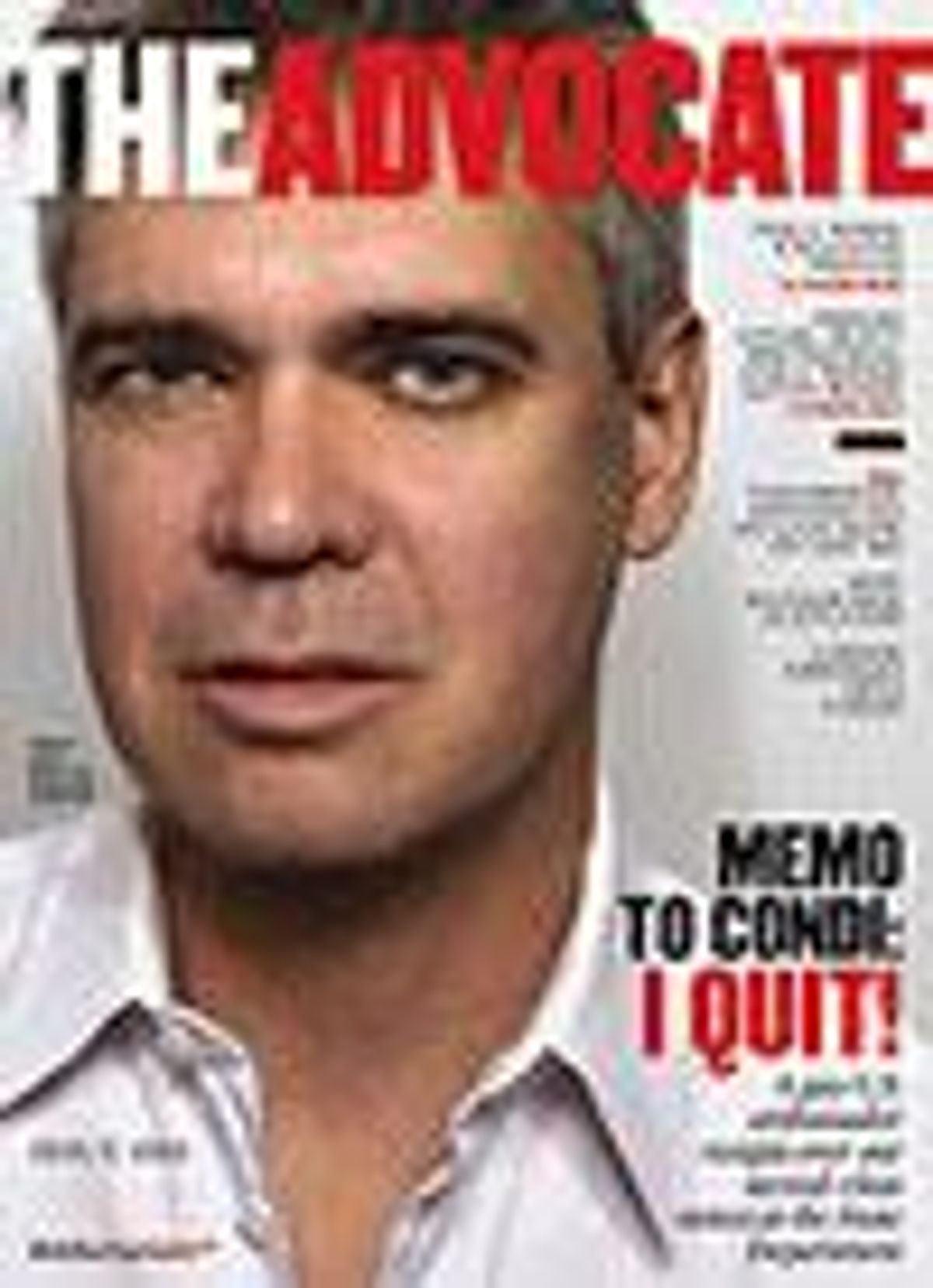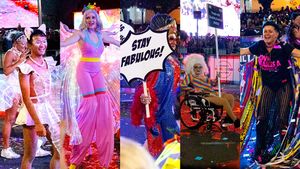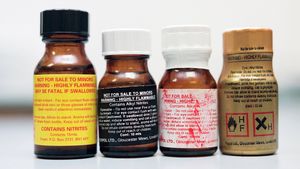Michael Guest
remembers the day he fell in love with the Foreign Service.
It was 1976, and the South Carolinian was interning on
Capitol Hill. He attended a State Department seminar
where a man in a plaid suit, he recalls one brisk
December afternoon, "talked about this fascinating
opportunity to travel the world, represent America, and
change things for the better." That was all
Guest needed to hear -- he was hooked. The political
aspirations he had harbored since childhood suddenly
fizzled, and he decided diplomacy would be his career.
And when he met
his partner, Alex, 12 years ago, Guest fell just as hard,
just as fast. Unfortunately, their romance would eventually
lead to the end of Guest's diplomatic career.
His tenure had included posts in Geneva, Hong Kong,
Moscow, and Prague -- and in 2001, when President Bush
appointed him as ambassador to Romania, Guest became the
first openly gay man to be confirmed by the Senate to
such a post. (Just two years earlier, after a
contentious battle in the Senate, President Clinton had
managed to install gay philanthropist James Hormel as
ambassador to Luxembourg only by pushing his
appointment through during a congressional recess.)
But after 26 years of stellar service, Guest decided in 2007
that he could no longer tolerate the State
Department's unequal treatment of gay employees
and their partners who are abroad. Unlike married
heterosexual spouses, Alex (who did not want his name or
profession revealed because of the nature of his
employment) and other same-sex partners of Foreign
Service officials are denied everything from
diplomatic visas to transportation allowances to cultural
and security training. So last November, in an
unprecedented move, Guest bid farewell to his State
Department family for the sake of his own family.
It was not an
easy decision, as he tells me in his and Alex's
handsome 1885 Washington, D.C., row house, which the
couple have painstakingly restored themselves over the
last decade. In their cozy downstairs parlor, filled
with souvenirs from Guest's tours of duty --
upstairs, a guest bedroom, dubbed the "Romanian
room," contains pottery and other objects
exclusively from that country -- the two men candidly
discuss, over tea and freshly baked cookies, their
high-profile journey.
The Advocate: What was life like before you met
Alex? Had you pondered the State
Department's policies pertaining to same-sex couples?
Guest: The first half of my career I was completely
focused on work. I was the guy you could count on
seeing in the office at 11 o'clock at night. I
loved what I was doing, and I didn't mind the long
hours. I found it refreshing and energizing to be
working on something that mattered -- but I never
thought of partner issues. Somewhere deep down I never
thought I'd have a partner.
So you were in for a big surprise when you wanted to
bring Alex with you to Prague, where you were
posted in the late 1990s.
Guest: I found out all the limitations! You
don't see a list, [but] you can make one. The
department never had the honesty to sit down and say
"Here it is" -- to lay it out in
black-and-white. I put it all together by asking a lot
of questions.
Several years later, when you were tapped to serve as
ambassador to Romania, Alex was onstage beside you
during your swearing-in--and Secretary of
State Colin Powell recognized him during the ceremony.
That caused quite a stir.Guest: I had a lot of Foreign Service officers,
colleagues, and friends who had advised me not to have
Alex on the dais with me. They said to keep him out in
the crowd because it would harm my career. I said,
"Look, he's giving up his job, he's
moving to Bucharest, he's supporting me. How
could I not acknowledge him?" Sure, a certain glass
ceiling was broken, but more importantly, it was the right
thing to do. I was unprepared for the reaction that it
got, because in my mind it was so right and so normal.


















































































